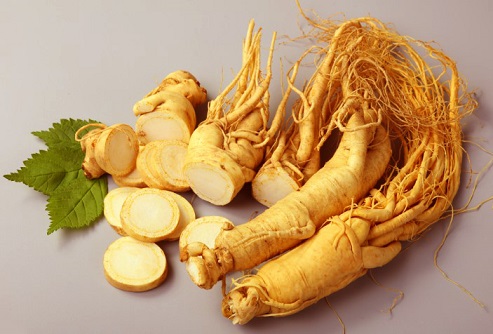Nikhil Prasad Fact checked by:Thailand Medical News Team Dec 11, 2024 4 months, 1 day, 21 hours, 6 minutes ago
Medical News: Researchers from Sungkyunkwan University in South Korea and University College London in the United Kingdom have collaborated on a groundbreaking study investigating ginseng's antiviral properties. The study explores how compounds from this ancient medicinal plant combat human pathogenic viruses like influenza, rhinovirus, hepatitis, and even COVID-19.
 Ginseng and Its Antiviral Properties
Ginseng and Its Antiviral Properties
Ginseng, especially its bioactive components called ginsenosides, has long been praised in traditional medicine for its therapeutic properties. This
Medical News report delves into how these compounds may offer new solutions to the global challenge of viral infections.
Understanding the Basics
Viruses are among the smallest agents of infection, yet they cause some of the world's deadliest diseases. Over the years, the search for antiviral drugs has often hit roadblocks, such as drug resistance and high toxicity. This has fueled interest in natural remedies like ginseng, a root used for centuries in Asia and North America as a "healing panacea."
In modern scientific research, ginseng's unique compounds, particularly ginsenosides, are showing significant promise. Ginsenosides are classified into subgroups such as panaxadiols and panaxatriols, and each shows distinct antiviral activities. For instance, some ginsenosides prevent viruses from entering human cells, while others boost immune responses to fend off infections.
What the Study Found
The researchers conducted an extensive review of studies published between 2002 and 2024 to evaluate ginseng's antiviral potential. They examined its effects against a range of viruses:
-Human Rhinovirus (HRV): Commonly causing colds, HRV infects millions annually. Ginseng extracts were found to reduce inflammation in infected nasal cells and inhibit virus replication.
-Influenza Virus: Ginsenosides not only inhibited the replication of influenza strains like H1N1 and H3N2 but also enhanced the body’s immune response. Mice treated with ginseng survived better than untreated ones, even against severe flu strains.
-HIV: Ginseng's compounds slowed the decline of immune cells in untreated HIV patients and showed synergy with existing antiretroviral therapies.
-Hepatitis Viruses: Ginsenosides reduced markers of inflammation and fibrosis in hepatitis-infected liver cells, suggesting potential benefits for chronic hepatitis management.
-COVID-19: Research highlighted how ginsenosides like Rg3 could inhibit the virus's entry into human cells and reduce complications related to inflammation.
The researchers also found evidence of ginseng’s efficacy as an immune booster. For example, Korean Red Ginseng (KRG) helped improve immunity in mice exposed to the h
erpes simplex virus, significantly reducing symptoms and accelerating recovery.
How It Works
Ginseng fights viruses through multiple mechanisms:
-Direct Antiviral Action: Certain ginsenosides block viruses from attaching to or entering human cells.
-Immune Modulation: Ginseng enhances both innate and adaptive immunity, enabling the body to better detect and destroy infected cells.
-Anti-inflammatory Effects: By suppressing harmful inflammation, ginseng helps prevent severe symptoms often caused by viruses like influenza and COVID-19.
Real-World Applications
Although much of the research on ginseng is based on laboratory studies, some clinical trials have shown encouraging results. For instance, HIV patients who consumed ginseng experienced slower disease progression. Similarly, ginseng enhanced the effectiveness of antiviral drugs in chronic hepatitis patients.
This study also highlights the potential for ginseng to be used alongside vaccines or as a preventive supplement during viral outbreaks. As natural remedies gain popularity, the evidence supporting ginseng’s role in modern medicine continues to grow.
The Road Ahead
While ginseng shows significant promise, more research is needed to confirm its efficacy and safety in humans. Future studies should focus on determining optimal dosages and exploring the synergy between ginseng and existing antiviral treatments. Additionally, researchers should investigate how different species of ginseng (such as Panax ginseng and American ginseng) compare in their antiviral properties.
Conclusion
This research underscores the potential of ginseng as a natural antiviral agent. By targeting multiple pathways, ginseng-derived compounds could provide a multifaceted defense against a wide range of viruses, from the common cold to life-threatening diseases like COVID-19 and HIV. With further study, ginseng might become an essential tool in the fight against viral infections.
The study findings were published in the peer-reviewed Journal of Ginseng Research.
https://www.sciencedirect.com/science/article/pii/S1226845324001623
For the latest on Antivirals, keep on logging to Thailand
Medical News.
Read Also:
https://www.thailandmedical.news/news/korean-red-ginseng-polysaccharides-boost-iga-production-and-strengthen-gut-health
https://www.thailandmedical.news/news/ginsenoside-rh2-from-red-ginseng-reduces-inflammation-by-blocking-tlr4-dimerization-and-key-immune-pathways
https://www.thailandmedical.news/news/university-of-wollongong-study-reveals-ginseng-as-a-potential-ally-against-monkeypox-mpox-infections
https://www.thailandmedical.news/news/herbs-and-phytochemicals-murine-study-shows-that-red-ginseng-extract-inhibits-lipopolysaccharide-induced-platelet-leukocyte-aggregates
https://www.thailandmedical.news/news/new-study-shows-that-ginseng-along-with-gut-microbiota-produces-myristoleic-acid-that-can-reduce-obesity
